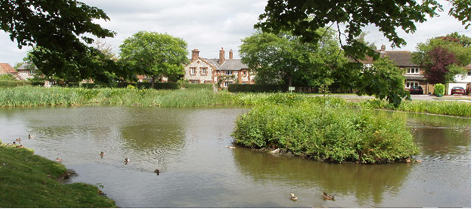The bulk of objections centre around half a dozen themes:
- Fears over increased traffic and the impact extra vehicle movements will have on Tylers Green, Penn and the A40
- Concerns the extra population will have on existing facilities such as schools and doctors’ surgeries
- Belief that the environment and wildlife in the valley will suffer irreparable damage (BBOWT, the local wildlife trust, says it is not possible to adequately mitigate the impact on existing protected nature sites with such a large development)
- Affects on health from increased air pollution
- Danger of flooding particularly bearing in mind the concerns of Thames Water and the flooding authority (see last week’s blog)
- The virtual merging of Tylers Green into Wycombe’s built up area and loss of the village’s separate identity
All these arguments were raised against the first outline planning application last year and objectors feel nothing has changed this time around.
However, a number of objectors are raising a new issue this time: has Covid 19 fundamentally changed the way we should look at housing developments in the future?
Many of the new objectors are people who have spent much of the last three months walking in the valley, realising its outstanding beauty, and feeling that development will ruin it. They argue open spaces should be left for future generations to enjoy.
Others point out that many businesses are unlikely to reopen or return to our town centres and the space they leave should be utilised for housing.
Others say the development’s reliance on public transport is outdated. Fewer people, they argue, will use public transport in the future and instead use electric vehicles.
Some say the time is now right for the council to pause and have a rethink about future housing development in a post-covid world. The pandemic, they say, has been a real game-changer.
